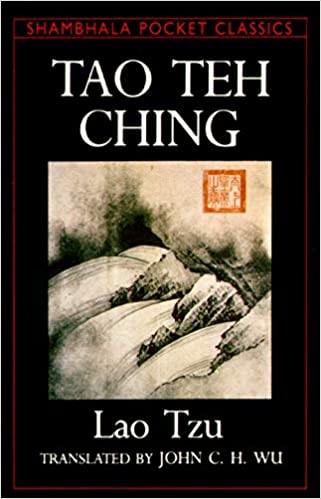Lately I have been thinking about a child-like tentativeness in thought and behaviour as a desirable trait. I will quote two ancient Chinese sages and let them present the case for me. Take a look and let me know what you think…
THE Sage has no interests of his own,
But takes the interests of the people as his own.
He is kind to the kind;
He is also kind to the unkind:
For Virtue is kind.
He is faithful to the faithful;
He is also faithful to the unfaithful:
For Virtue is faithful.
In the midst of the world, the Sage is shy and self-effacing.
For the sake of the world he keeps his heart in its nebulous state.
All the people strain their ears and eyes:
The Sage only smiles like an amused infant.
– From the Tao Teh Ching of Lao Tzu
THE ancient adepts of the Tao were subtle and flexible, profound and comprehensive.
Their minds were too deep to be fathomed.
Because they are unfathomable,
One can only describe them vaguely by their appearance.
Hesitant like one wading a stream in winter;
Timid like one afraid of his neighbours on all sides;
Cautious and courteous like a guest;
Yielding like ice on the point of melting;
Simple like an uncarved block;
Hollow like a cave;
Opaque like a muddy pool;
And yet who else could quietly and gradually evolve from the muddy to the clear?
Who else could slowly but steadily move from the inert to the living?
He who keeps the Tao does not want to be full.
But precisely because he is never full,
He can always remain like a hidden sprout,
And does not rush to early ripening.
– From the Tao Teh Ching of Lao Tzu
“The man of character lives at home without exercising his mind and performs actions without worry. The notions of right and wrong and the praise and blame of others do not disturb him. When within the four seas all people can enjoy themselves that is happiness for him. When all people are well provided, that is peace for him. Sorrowful in countenance, he looks like a baby that has lost its mother. Appearing stupid, he goes about like one who has lost his way. He has plenty of money to spend and does not know where it comes from. He drinks and eats just enough and does not know where the food comes from. This is the demeanour of the man of character.
“The hypocrites are those people who regard as good whatever the world acclaims as good and regard as right whatever the world acclaims as right. When you tell them that they are men of dao then their countenances change with satisfaction. When you call them hypocrites they may look displeased. All their life they call themselves men of dao and all their lives they remain hypocrites. They know how to make a good speech and tell appropriate anecdotes in order to attract the crowd. But from the very beginning to the very end they do not know what it is all about. They put on the proper garb and dress in the proper colours and put up a decorous appearance to make themselves popular but refuse to admit that they are hypocrites.”
– Behaviour of the high form of man, Zhuang Zhou
